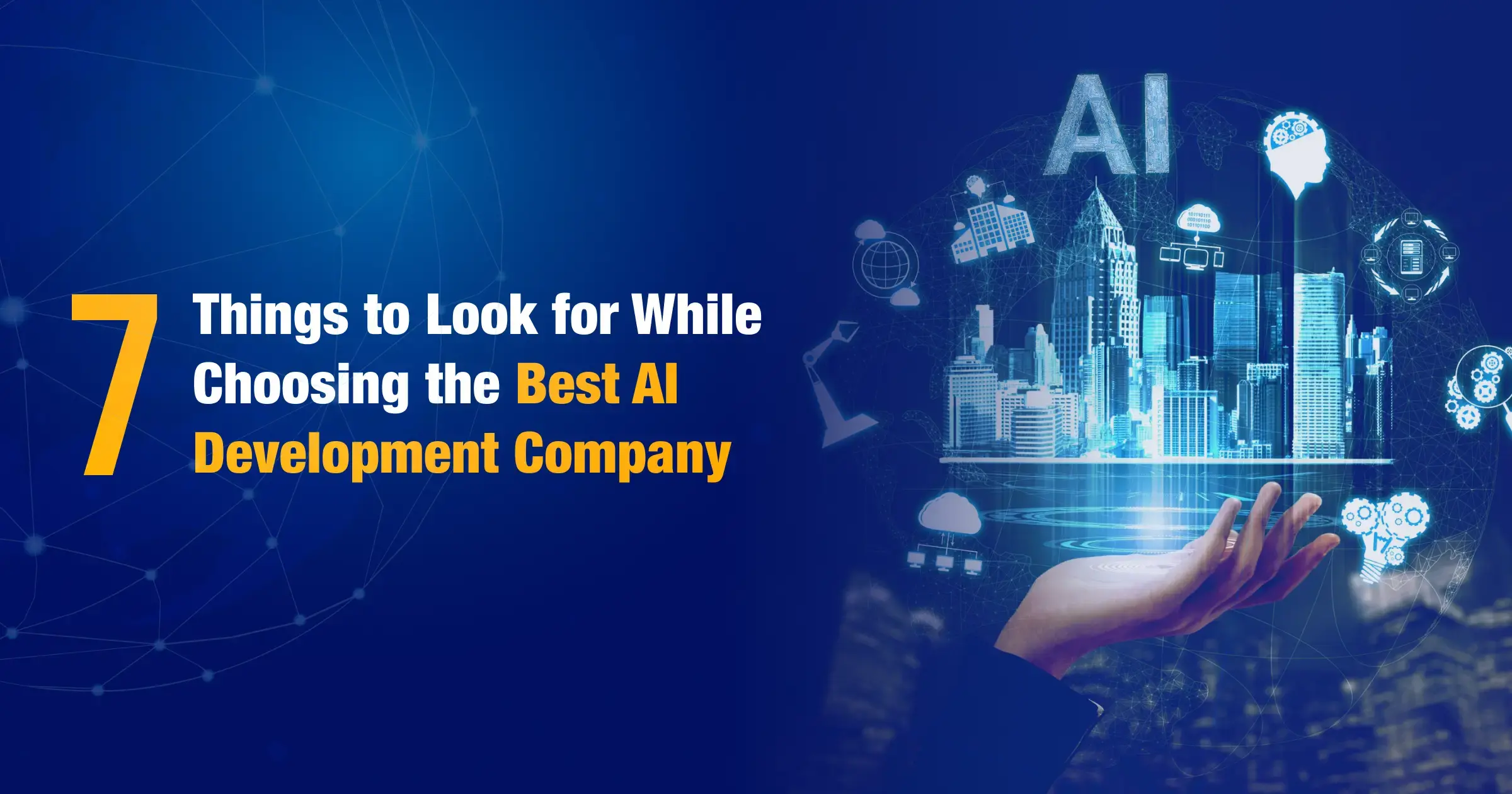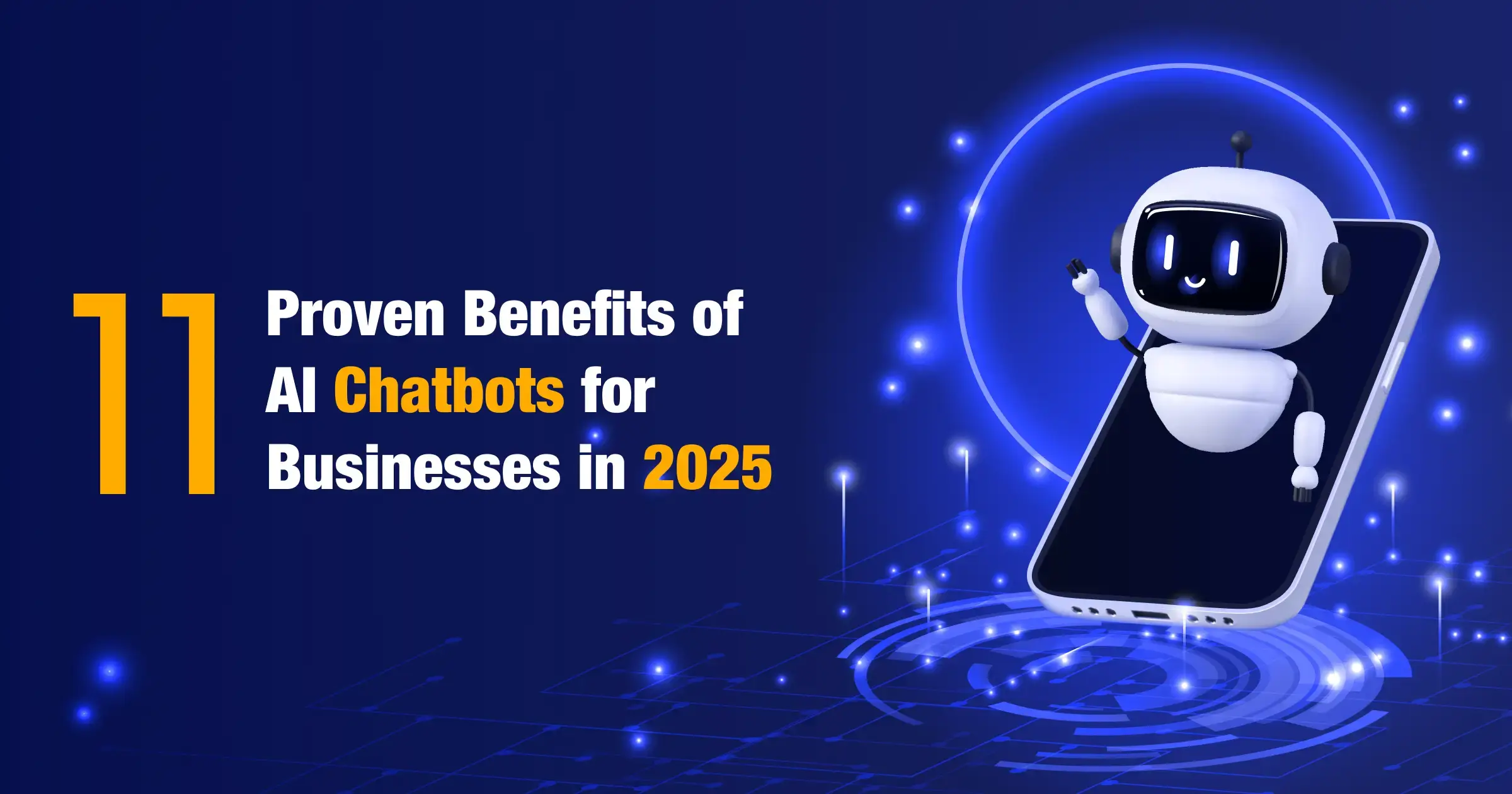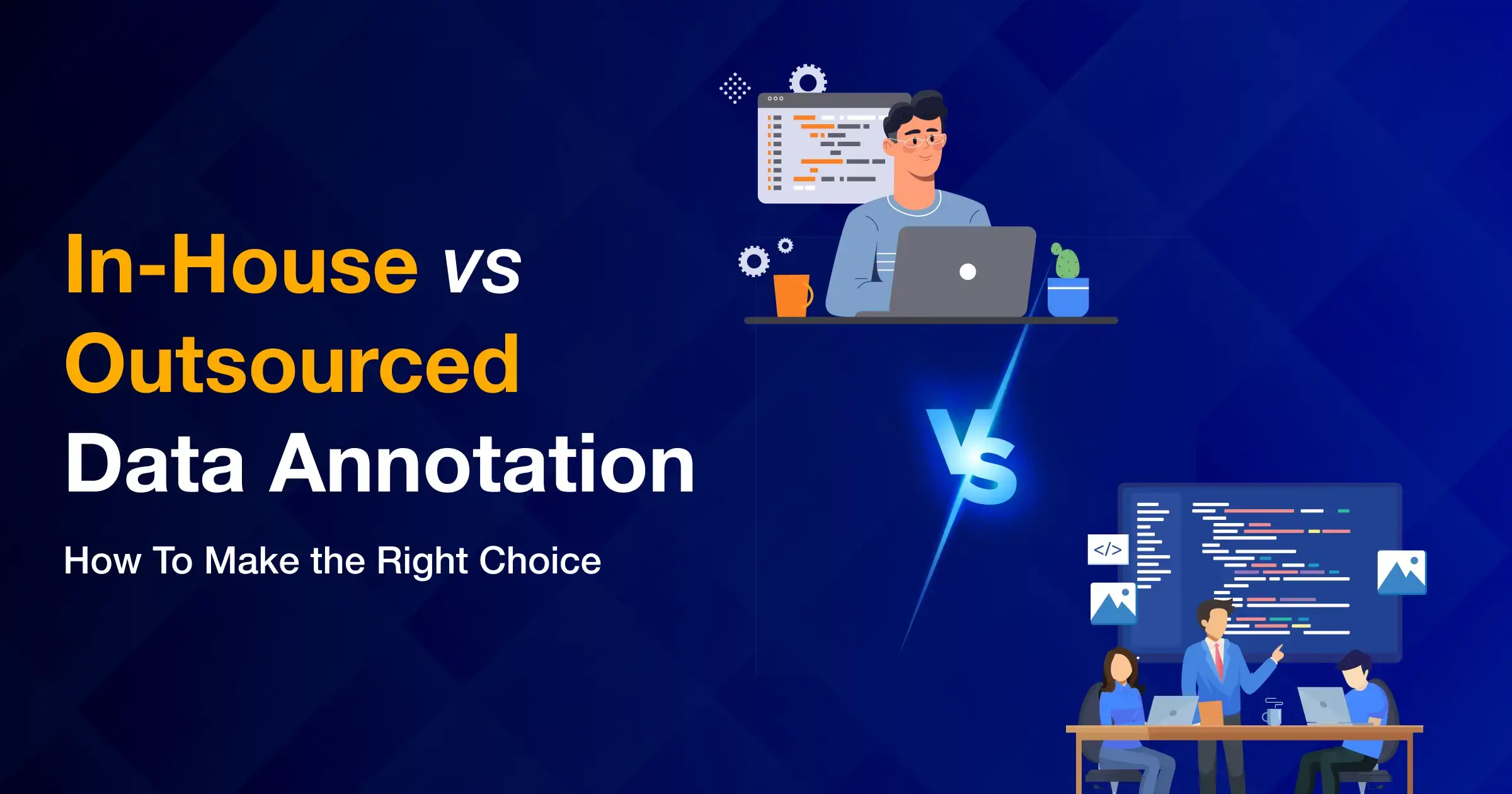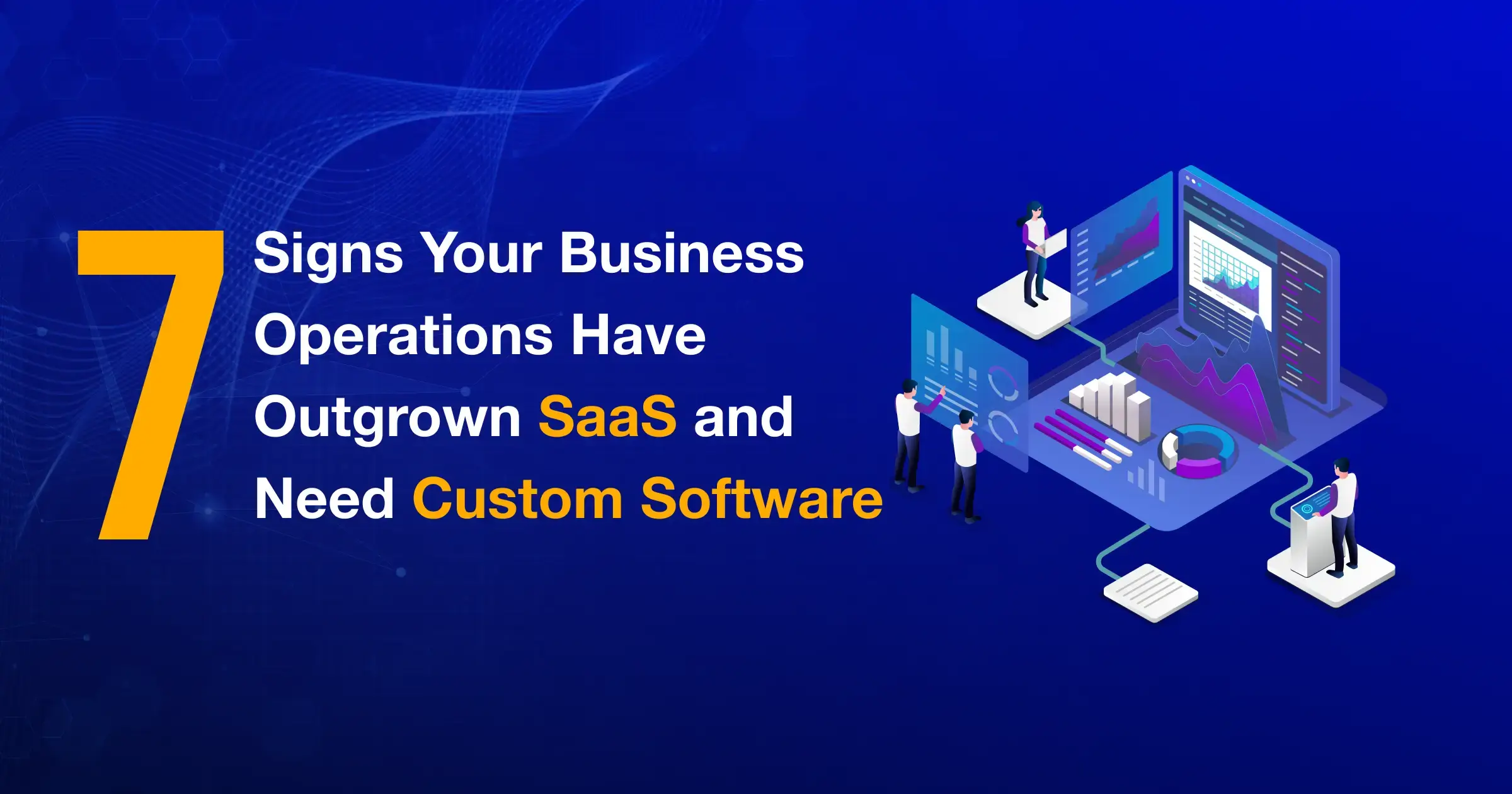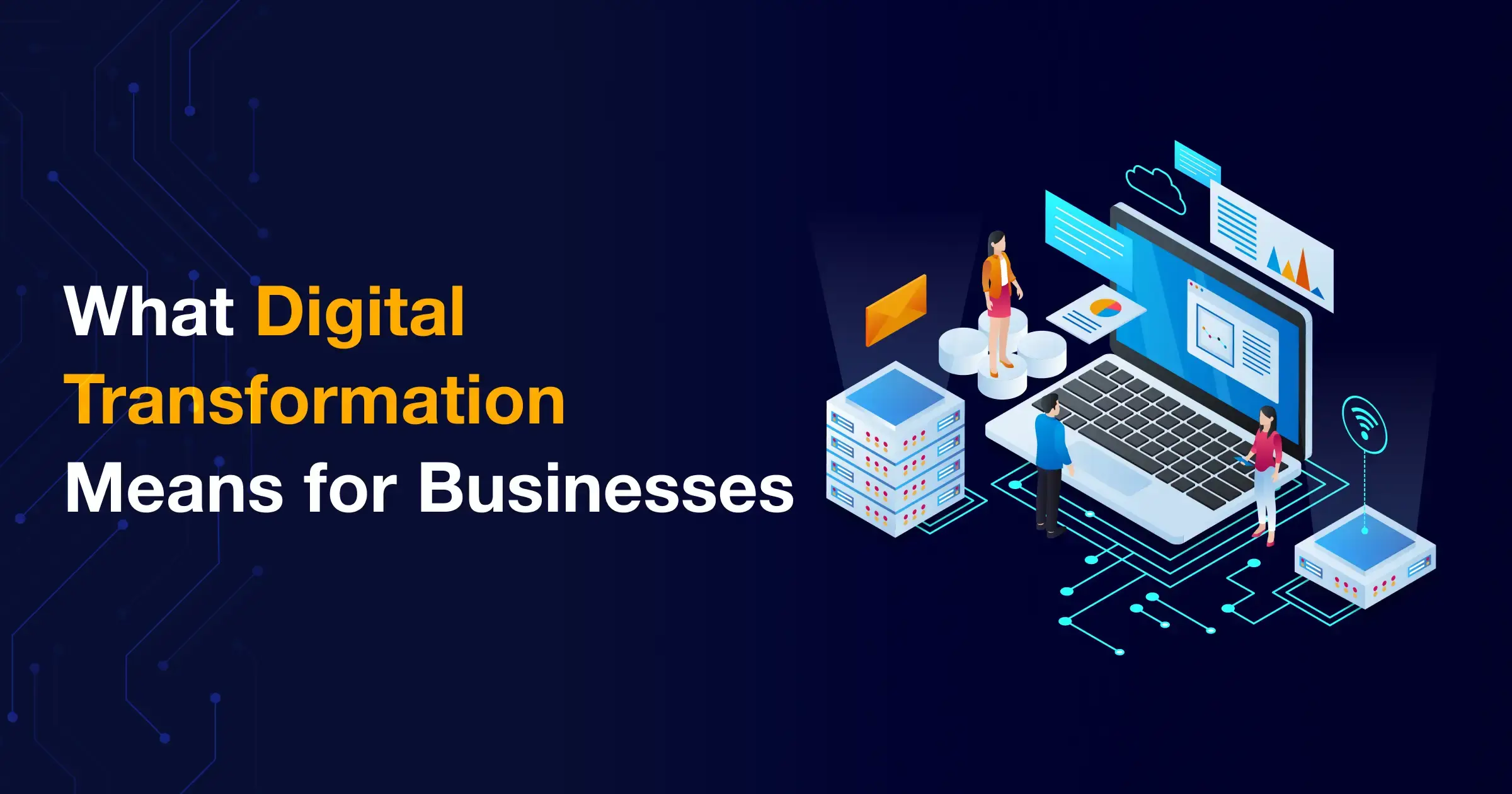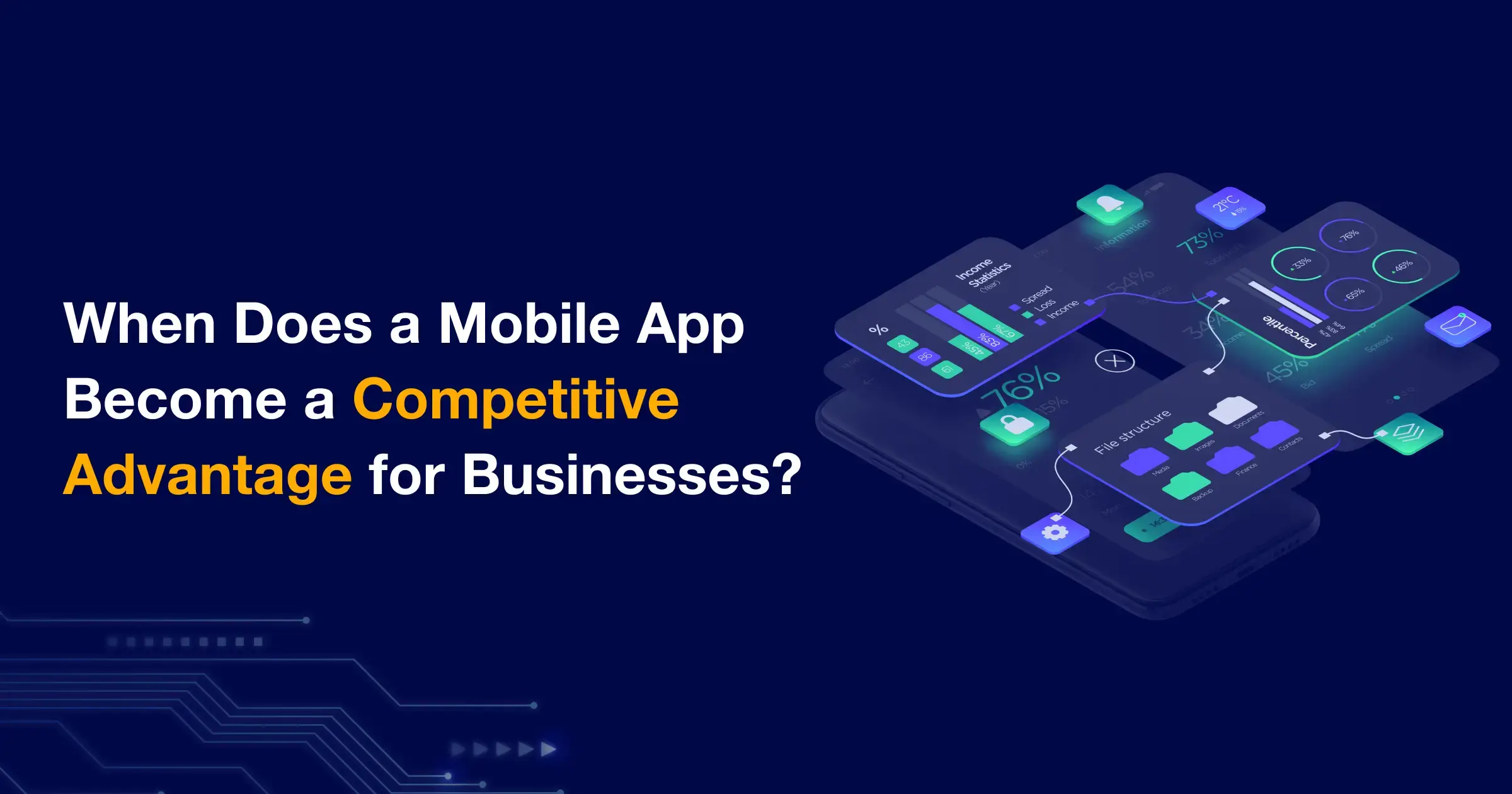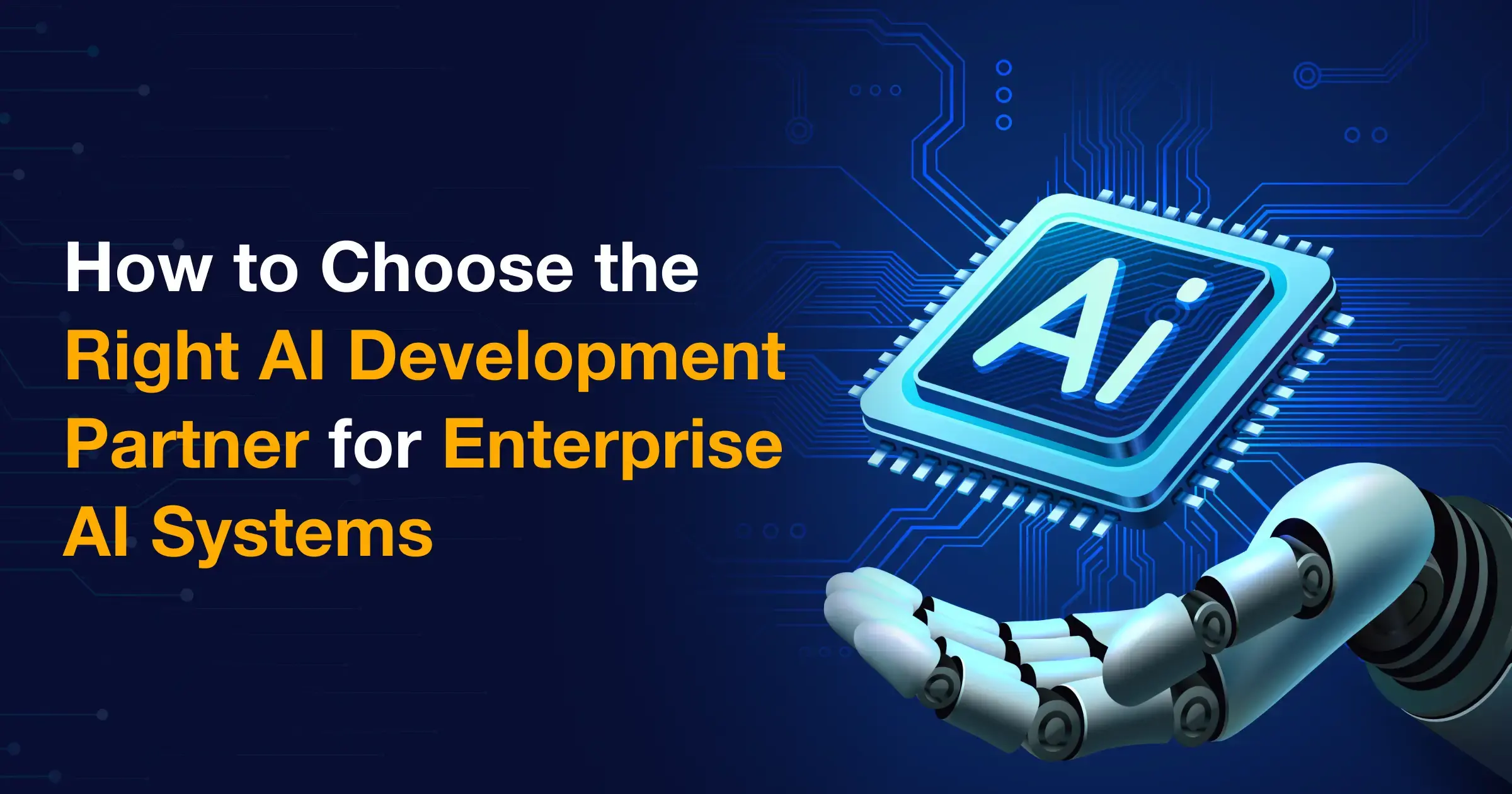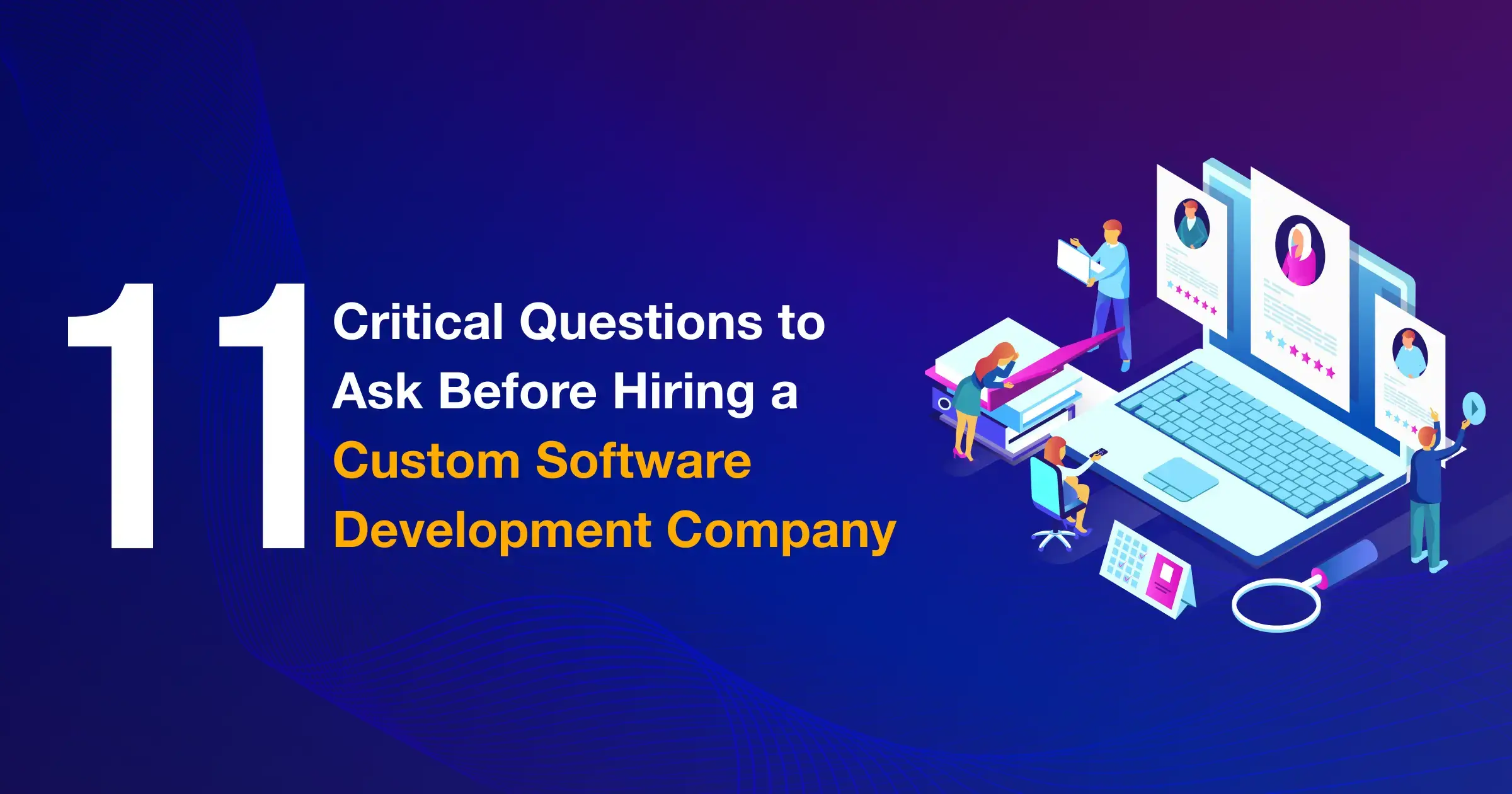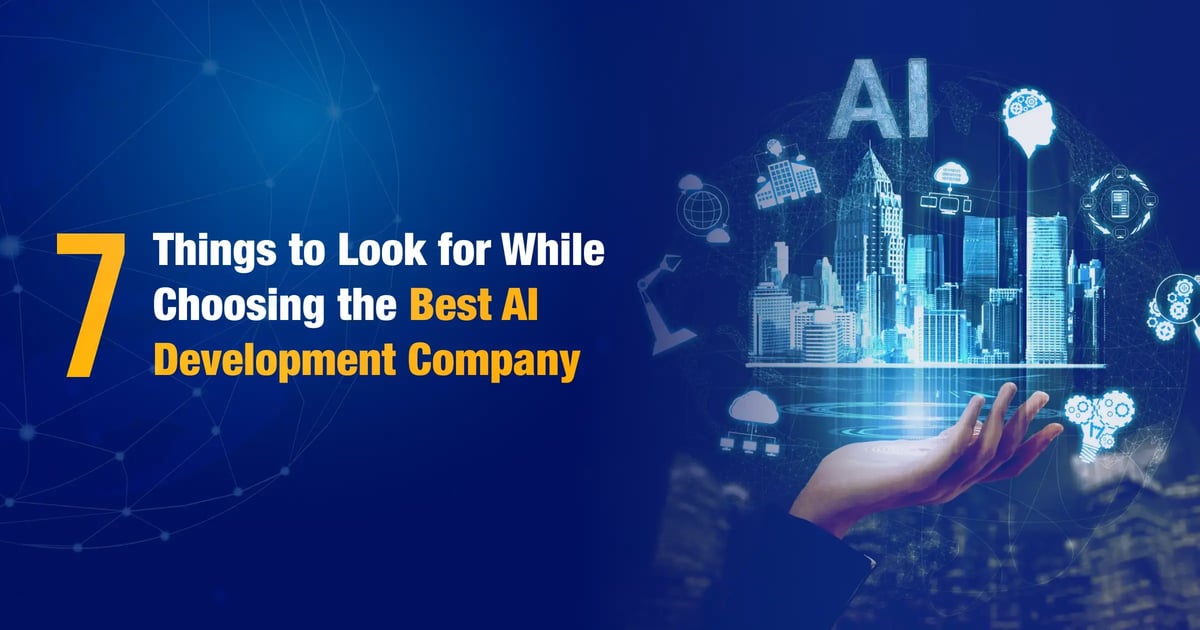
Do you feel like you are at the crossroads of adopting AI but unsure where to start? If that’s the case, you’re not alone. Adopting artificial intelligence for business is a pivotal step yet not everyone has the privilege of tasting sweet success.
Various research studies show that
So how do you choose the right AI development company?
Always start by defining your business goals, then look for companies with proven experience in solving similar problems. Check for case studies, transparent processes, tech expertise, and post-deployment support. The right company won’t just build AI as they’ll align it with your long-term vision and growth strategy.
So while AI is clearly a top priority for modern enterprises, the real challenge isn’t awareness, it’s execution. And that execution often starts with choosing the right AI development company to guide the journey.
But here’s the problem: too many businesses jump in without a clear sense of direction. Without defined expectations, it’s easy to fall for buzzwords, fancy demos, or promises of overnight results.
That’s how companies end up with solutions that don’t scale, models that don’t perform, or platforms that never get adopted.
Before you choose a partner, take a step back. Define your “why” clearly. Ask yourself:
- What specific business problems are you aiming to solve with AI?
- What outcomes would define success? Is it cost reduction, improved efficiency, enhanced customer experience, or something else?
- What level of integration is needed with your existing systems?
- Are there non-negotiables like compliance, data privacy, or real-time decision-making?
Having a strong foundation like this helps you avoid mismatches and ensures that you’re evaluating AI companies through the right lens.
The truth is, finding the best AI development partner isn’t about going with the biggest name, but it’s about finding the one that gets your context, speaks your language, and can build for scale and impact. And that’s what this blog is here to help you do.
Key Takeaways
- Start with a clear business goal for choosing the right AI development partner.
- Ask about the company's past AI projects, especially in your industry.
- Ensure the company follows best practices in data handling, privacy, and compliance.
- Check what models, frameworks, and cloud platforms they use, and why.
- Find out who’s actually building your solution, so look for proven AI engineers.
- Evaluate their process from discovery to deployment, not just the final product.
- Look for flexibility in pricing and engagement models that suit your needs.
- Don’t ignore support, ask how they’ll help you maintain and scale post-launch.
- Review client testimonials, case studies, or success metrics if available.
- Choose a partner who speaks your business language, not just tech jargon.
What to Look for When You Engage with a Potential AI Partner

Once you’ve narrowed down your list of potential AI development partners, the real evaluation begins, not through their portfolio, but in how they handle the first conversation.
Pay close attention to early signs like the below ones:
- How fast do they respond?
- Is the tone robotic or human?
- Do they ask relevant follow-up questions?
- Are they tailoring their message to your inquiry?
With all these, you’re not just observing communication but seeing their process, their priorities, and, most importantly, their level of professionalism.
The interaction should feel balanced, neither rushed nor overly passive. A credible AI partner will take time to understand your business before offering solutions. If the conversation feels one-sided or forced, it could be a warning sign.
You’re not looking for someone who’s eager to close a deal fast; you’re looking for a partner who’s willing to slow down, ask the right questions, and shape a solution around your specific goals.
If, at this point, things feel off, especially:
- if the responses are vague,
- if they’re hesitant to talk about previous work, or
- if the strategy sounds too generic
it’s okay to pause.
Transparency is the bedrock of trust, and any reluctance to share how they work, what they've done, or who they've worked with should raise a flag.
Similarly, if the dialogue starts to shift into persuasion tactics, pushing you to commit before you’re ready, it’s worth reevaluating.
A trustworthy partner won’t pressure you. They’ll give you space to think, ask questions, and move at your own pace.
After your initial outreach, you’ll likely be assigned a lead consultant or a team responsible for planning and implementation. Take a moment to validate their credentials. Look them up, explore their work, and see if their background aligns with your needs.
A little verification now saves a lot of regret later. You want people who don’t just look good on paper, but who can actually deliver in practice.
Why Picking the Right AI Development Partner Is a Big Deal
Let’s be honest. Choosing an AI partner can feel overwhelming. You want someone who “gets it” – not just the tech, but also your business goals. A great AI partner doesn’t just build tools. They guide, simplify, and scale with you. That’s why picking the right one is one of the most important decisions you’ll make.
Below are some key things that make a good AI partner stand out.
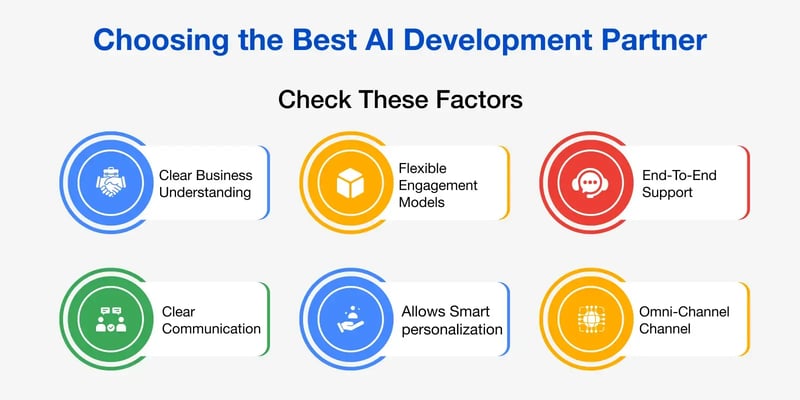
1. Business Understanding Over Just Tech Expertise
Some vendors might wow you with AI buzzwords. But real value comes when they understand your business model, not just the model architecture. Your partner should ask the right questions, understand your pain points, and build solutions that align with your goals, not just the latest trend.
- Solutions that solve actual business problems
- Clear mapping between use cases and ROI
- Inputs from both tech and business teams
2. Flexible Engagement Models
Your needs will change as you grow. Sometimes you need a full build team. Other times, just a few experts for a short period. A good partner gets this and gives you flexible options to work with them, without locking you into long, rigid contracts.
- Pay-as-you-go, project-based, or dedicated team models
- Scale up or down as per your roadmap
- Quick onboarding and smooth exits
3. End-to-End Support, Not Just Delivery
Some vendors stop at code delivery. But with AI, you need more than that. You need help with planning, training data, model tuning, and post-launch tweaks. The right partner will stay with you throughout the cycle, from idea to impact.
- Support from strategy to deployment
- Assistance with data preparation and prompt engineering
- Post-launch monitoring and fine-tuning
4. Clear Communication and Shared KPIs
The best partnerships are transparent. You should never feel lost or out of the loop. Great AI vendors keep things simple. They speak in plain language, set shared goals, and track progress in a way that’s easy for everyone to understand.
- Regular updates with no jargon
- Shared goals and agreed success metrics
- Fast feedback cycles and real-time visibility
5. Smarter Personalization at Scale
AI chatbots can understand your customers better than you think. They analyze user data, past interactions, and preferences to deliver responses that feel personal. This isn’t just about calling someone by name, it’s about remembering what they need, when they need it.
- Learns from past conversations and behavior
- Adjusts messages based on user profile and intent
- Delivers dynamic content suggestions in real time
6. Seamless Omni-Channel Support
Your customers don’t stick to one platform, and neither should your support. AI chatbots can work across channels like websites, apps, social media, and messaging platforms. This creates one smooth experience for users, no matter where they start the conversation.
- Offers support on WhatsApp, Facebook, websites, and more
- Keeps conversation history across channels
- Gives users a consistent experience everywhere
7. Continuous Learning and Improvement
AI chatbots are always getting better. Thanks to machine learning, they learn from every chat, every question, and every mistake. Over time, this helps them answer faster, sound more human, and solve more problems without needing help from a person.
- Learns from new queries and feedback
- Updates its own knowledge base automatically
- Gets smarter and more accurate over time
A Quick Look at How to Choose the Right AI Development Company
|
Criteria
|
What to Look For
|
Why It Matters
|
|
Proven Expertise
|
Experience in delivering production-grade AI solutions across industries
|
Ensures the company can handle real-world complexity, not just prototypes
|
|
AI Capabilities
|
Ability to build tailored models, not just plug-and-play tools
|
Your business gets solutions that actually solve your specific problem
|
|
Full-Stack Development
|
End-to-end capabilities (data engineering, model training, deployment, MLOps)
|
Reduces vendor dependency and speeds up your project cycle
|
|
Transparent Process
|
Clear project milestones, timelines, and cost structures
|
Keeps you in control and avoids scope creep or hidden costs
|
|
Data Security
|
Strong data handling policies, GDPR/industry compliance, access control mechanisms
|
Critical for safeguarding sensitive information and building trustworthy systems
|
|
Innovation & Tech Stack
|
Up-to-date with the latest AI trends (LLMs, RAG, transformers, etc.)
|
Future-proofs your solution and maximizes long-term ROI
|
|
Post-Deployment Support
|
Ongoing model monitoring, updates, and performance tuning
|
Your AI system stays accurate and aligned with evolving business needs
|
Look Beyond the Hype; Choose Vision
By now, you've done the hard work, defining your goals, researching companies, and starting conversations. But there’s one final filter you should apply before committing to a partner: vision.
Not every AI firm thinks long-term. Some are built to sell quick-fix solutions that look impressive on a demo but fall flat in real business settings. If you’re serious about AI, you’ll want a partner who looks beyond the trends and knows where this technology is going.
Vision isn’t about buzzwords. It’s about depth.
- Is the company thinking about where AI will be next year, or in the next five?
- Are they helping clients build just a proof of concept, or are they guiding them toward scalable, future-ready systems?
These are subtle things. But once you know what to look for, they’re easy to spot.
Start by looking into their thought leadership. Do they regularly publish insights, technical papers, or open-source tools?
That shows they’re not just following the AI movement; they’re contributing to it. See if they’ve spoken at conferences, partnered with academic labs, or built developer communities. These efforts tell you they’re not just here for now, they’re invested in what’s next.
Next, pay attention to how they talk about long-term planning. A future-ready AI partner won’t stop at building an MVP. They’ll help you shape a clear roadmap, not just for tech, but for people, data, and process evolution too.
A few things to look for:
- They explore agentic AI, multi-agent systems, or intersections with quantum computing.
- They support ethical AI practices and align with responsible innovation frameworks.
- They ask where your business wants to be in 3 to 5 years, not just what you need today.
The right partner won’t overwhelm you with jargon. They’ll make complex ideas simple, and they’ll always bring the conversation back to your vision. Because that’s what matters most, building something that not only works, but grows with you.
Here’s How Autodesk’s AI-Powered Virtual Assistant Changed the Game
Autodesk faced real challenges. They shifted to a subscription model. That meant more user questions and faster support needs. Many questions were basic, such as activation codes, address updates, contract queries.
Handling these took a full day or more. With subscription growth, that response time wasn’t sustainable.
Autodesk chose an AI development partner. They built a virtual assistant using IBM Watson Assistant. It took natural-language queries. It understood intent. It gave fast, accurate answers. If it couldn’t solve an issue, it collected enough detail and routed it to a human agent.
The results were immediate and dramatic:
- 100,000 conversations per month handled by the virtual assistant.
- Resolution time dropped from 1.5 days to about 5.4 minutes for most questions.
- Customer satisfaction rose by 10 points on a standard feedback scale.
That's a real transformation. Basic queries got resolved quickly. Agents could focus on complex problems. Support scale matched business growth. Users got answers in minutes, not days.
Autodesk’s case shows what’s possible with the right partner. They didn’t chase buzzwords. They solved real pain points. They used AI to serve both customers and the support team. And they delivered faster, smarter support at scale.
What Truly Matters in an AI Partnership
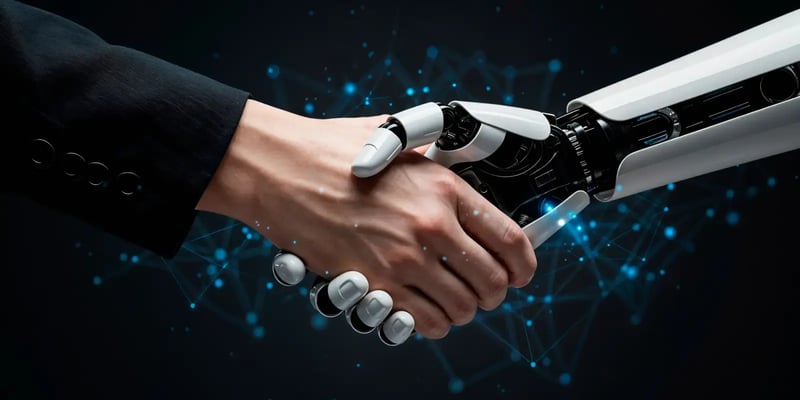
Finding the right AI consulting partner might seem overwhelming at first, but it doesn’t have to be. It all starts with preparation. The more clarity you have on your goals, expectations, and internal readiness, the easier it becomes to evaluate external partners.
Start with your “why.” What do you want AI to do for your business? Is it reducing manual work? Improving customer interactions? Speeding up processes? Your answers will act as filters, helping you rule out companies that can’t deliver what you actually need.
Then look at your internal data and teams. Is your data clean, accessible, and well-organized? Who will work with the AI consultants on your end? These practical checkpoints are often overlooked, and they can make or break a project.
Now, as you begin to engage with potential partners, observe their process closely. How do they communicate? How quickly do they follow up? Are their questions thoughtful and tailored to your business? These soft signs often tell you more than any sales deck or website ever could.
And don’t forget to ask for proof. Case studies, testimonials, and client references are your best friends during this stage. The right partner won’t hesitate to show their past work and walk you through how they approached it.
The most important thing? Don’t rush it. AI projects are strategic moves, not quick fixes. A little extra effort now can save you from major disappointments later. Pick a partner who listens, adapts, and truly understands your business, not just the tech.
This isn’t just about implementing AI. It’s about transforming how your business thinks, operates, and grows. So take your time, do the groundwork, and choose wisely. The right partner will make all the difference.
Frequently Asked Questions (FAQs)
How do I choose the right AI development company?
Track record of a company speaks a lot more than actual words. So, always start by looking for the case studies, testimonials, reviews, and ratings. If you want a better clarity, look for similar projects as that of yours. If a vendor walks you through how they got there, you’ll get to know that they’re good.
So to put it simply, start exploring the AI development company’s track record, their digital footprint and reputation, how effective they communicate and how transparent they are. These are some of the deciding factors you should consider before one.
Should I outsource AI development or build in-house?
For many businesses outsourcing AI development is the best way because it will take the hassle out of your company. You’ll get faster results and access to a broader skill set if you prefer to outsource. It helps you do away with building in-house team that may demand significant budget and time.
What questions to ask an AI development company?
It’s not the right answers but the right questions that will help you clarify doubts and set the stage for your AI development journey. We have crafted a few questions that may come as beneficial to you:
- What tech stack do you use for AI development?
- What is the team composition and what skills do they possess?
- How do you handle proprietary data during model training and testing?
- What’s the estimated time-to-market for a minimum viable AI product?
- How will you measure ROI and success metrics for this AI solution?
How does an AI agency work?
AI development firm works as an extension to your team. You’ll likely be assigned a team of professionals ranging from data scientists and AI/ML engineers to AQ experts. The process typically kickstarts with the discovery phase. Good agencies will keep you looped in, explain what’s happening in plain terms, and adjust fast when things change.
What is the first thing to clarify before talking to AI companies?
You should know what business problem you want AI to solve. Because only when you have clear goals will you be able to communicate your goals effectively to the AI development company.
Can I train AI using my own data?
Yes. Good AI development partners design systems that use your data, not just open datasets. This makes outcomes more accurate and aligned with your business.
What support should come after deployment?
Artificial intelligence is a significant investment – both cost-wise and ROI-wise. So, once the vendor deploys AI, you want it to be monitored continuously, ensure it is regularly updated, fix problems if and when they arise, and so on. Make sure the vendor plans for real use, not just a launch.
What level of customization should I expect?
Off-the-shelf solutions, even if they’re AI, rarely fit well. You want them to adapt models and tech to your workflow, industry, and team. That’s where real value shows.
How do they handle secure data access and AI compliance?
Your data is critical. Make sure they have strong protocols, compliance practices, and explain how they manage data securely.

